The Defense Rests
Brief Synopsis
Cast & Crew
Lambert Hillyer
Jack Holt
Jean Arthur
Nat Pendleton
Arthur Hohl
Raymond Walburn
Photos & Videos
Film Details
Technical Specs

Synopsis
Lawyer Matthew Mitchell is a brilliant, egotistical criminal defender who uses a wide assortment of legal tricks and an uncanny awareness of human nature to get his clients acquitted. Even Mitchell's usual opponent, district attorney James Randolph, admits that his reputation is such that the newspapers print the extras announcing an acquittal before the verdict is in on his cases. Joan Hayes, Mitchell's assistant and a lawyer herself, is disgusted by his underhanded tactics, especially in the case of Mabel Wilson. Mabel was arrested for the shooting death of her lover, gambling ship owner Ballou, and even though she is not guilty, Mitchell has her testify that she killed Ballou in self-defense when he abused her while she was drunk. Mitchell instructs Mabel to cry and show the jury her legs, and the tricks succeed in winning her an acquittal. Joan sharply criticizes Mitchell, telling him that his legal maneuvering has resulted in the unknown murderer going free. He responds, however, that it is the police's business to capture criminals, but it is his job to free them. Determined to find the killer and prove Mitchell's wrongdoing, Joan begins her own investigation into Ballou's death and discovers that the murder weapon belongs to Ballou's partner, Gentry. When Joan presents the evidence to Mitchell and threatens to have him arrested for perjury if he does not end his practice, he scoffs at her and tells her to go to Randolph with her findings. Mitchell's underworld connections then pressure him to defend a notorious kidnapper named Cooney, and, enticed by Cooney's offer of a $50,000 fee, Mitchell agrees. Even the pleas of Mrs. Evans, whose four-year-old child was returned to her dead after she paid Cooney a ransom, do not dissuade Mitchell from taking the case. The trial goes well, and just as it appears that Mitchell will win, the desperate Mrs. Evans commits suicide in his office to protest his defense of her child's killer. Shaken to the core, Mitchell finally realizes how morally suspect his law practice has been. Joan discovers that the money with which Cooney paid Mitchell's retainer is the marked ransom money, and Mitchell secretly gives this evidence to the district attorney after he resigns as Cooney's lawyer. Cooney is then convicted without Mitchell's gangster connections knowing of his involvement. Back at his office, Mitchell tells Joan to prosecute him for perjury in Mabel's case, but the enterprising Joan, who has fallen in love with Mitchell despite her antipathy for his ethics, has a different plan in mind. She proposes that he marry her, and then, as his wife, she cannot be compelled to testify against him. Mitchell realizes that he loves her and, agreeing to change his ways, happily accepts her proposal. The case of Ballou's murder is also solved when Gentry's guilt is revealed and he is killed by Ballou's allies.

Director
Lambert Hillyer
Cast

Jack Holt

Jean Arthur
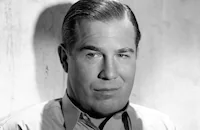
Nat Pendleton
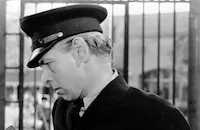
Arthur Hohl

Raymond Walburn

Harold Huber
Robert Gleckler
Sarah Padden

Shirley Grey
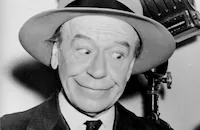
Donald Meek
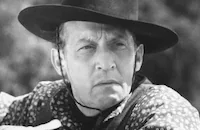
Raymond Hatton

Ward Bond

John Wray
Vivian Oakland
Selmer Jackson

J. Carrol Naish
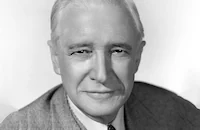
Samuel S. Hinds
Sam Hayes
Eleanor Wood
Lydia Knott
A. R. Haysel
Charles Mcavoy
Hal Price
Arthur Belasco
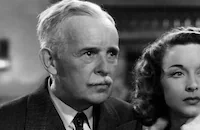
Howard Hickman
Allen Caven
Ernest Young

Bess Flowers
Harrison Greene
Tony Martelli
Charles Brinley
Charles King
Lynn Cowan
Jerry Storm
Billy West
Jack Mack
Wilfred North
Joe Marba
Ray Ellis
Frank Mills
Stanley Mack
Maston Williams
Kernan Cripps
Bess Stafford
Sam Lufkin
Bruce Randall
Mary Gordon
Milla Davenport
Harry Hume
Stephen Colt
Oliver Eckhardt
Bert Morehouse
Don Brody
Nick Copeland
Brooks Benedict
Frank O'connor
Arnold Gray
Reginald Simpson
Edward Cecil
Bobbie Sheehan
Joan Dix
Hal Taggart
Geneva Mitchell
Arthur Hickman
Crew
Jack Andersen
Joseph August
Edward Bernds
Eddie Blaisdell
Evelyn Fontayne
Bill Fraker
Marcel Grand
William Lally
Wilbur Mcgaugh
Robert North
Jimmy Punter
Dave Ragin
John Rawlins
George Rhein
Jo Swerling

Photo Collections
Film Details
Technical Specs

Quotes
Trivia
Notes
The working title of this film was Take the Witness. News items from 1933 indicate that Columbia had initially planned to base this film on the novel Take the Witness by Al Cohn and Joe Chisholm (publication undetermined), and had assigned Brian Marlow to write the screenplay. The extent to which any of these writers' work is reflected in the completed film has not been ascertained. According to the MPAA/PCA Collection at the AMPAS Library, the picture was rejected for distribution in Jamaica and Quebec. Although the film was initially rejected in British Columbia, it was later accepted with the condition that the following statement be inserted after the title: "The venue of this scenario is set in another country and must not be taken as any reflection on the ethics of members of the Law Society in British Columbia. THE MANAGEMENT."












